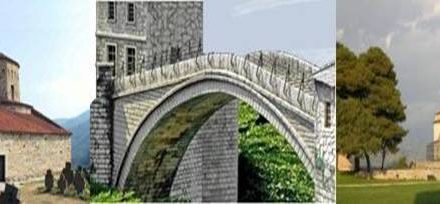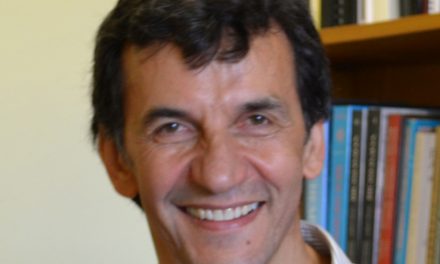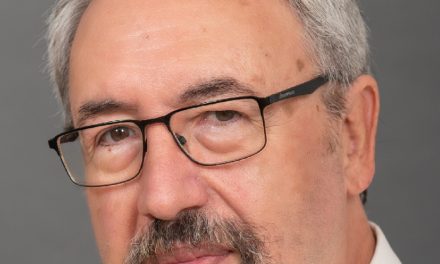The web portal Study in Greece is campaigning for the promotion and international visibility of Greek Universities and the comparative educational advantages of our country. In particular, the campaign focuses on the foreign language study programmes that Greek Universities offer to Greek and international students. The initiative is supported by the General Secretariat of Higher Education of the Ministry of Education and Religious Affairs and the General Secretariat for Greeks Abroad and Public Diplomacy of the Ministry for Foreign Affairs. In this context, a number of educational programmes and actions are presented in detail on a regular basis, such as undergraduate and postgraduate programmes, summer schools etc, to inform international students about the many foreign language options offered by Greek Universities.
Study in Greece interviewed Associate Professor Spyros Fountas, Director of the MSc in Digital Technologies and Smart Infrastructure in Agriculture offered at the Agricultural University of Athens (AUA), about the programme, its features and what it has to offer to international students.
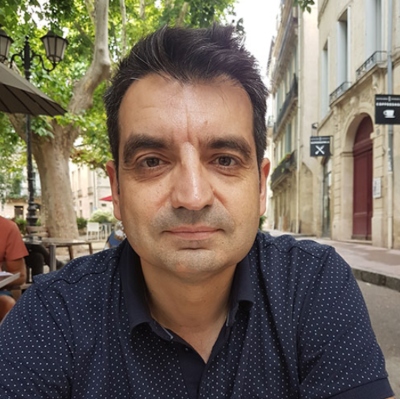 Spyros Fountas is Associate Professor at the Department of Resource Management and Agricultural Engineering at the Agricultural University of Athens, with a demonstrated history of working in research and application of new technologies in the agricultural industry. He has worked applying precision agriculture technologies on commercial farms in several countries (Greece, UK, Denmark, USA). He has successfully coordinated the H2020 projects, Smart-AKIS and GATES and is currently coordinating the OPTIMA project. His area of expertise includes Project Management, Applied Research and Sustainable Development.
Spyros Fountas is Associate Professor at the Department of Resource Management and Agricultural Engineering at the Agricultural University of Athens, with a demonstrated history of working in research and application of new technologies in the agricultural industry. He has worked applying precision agriculture technologies on commercial farms in several countries (Greece, UK, Denmark, USA). He has successfully coordinated the H2020 projects, Smart-AKIS and GATES and is currently coordinating the OPTIMA project. His area of expertise includes Project Management, Applied Research and Sustainable Development.
Mr Fountas, please tell us a few things about the main objectives and the basic rationales of the MSc Programme “Digital Technologies and Smart Infrastructure in Agriculture” which is offered by the Agricultural University of Athens.
The objective of the MSc Programme “Digital Technologies and Smart Infrastructure in Agriculture” is the specialisation in the scientific domain of smart technologies and infrastructure across the agri-food supply chain and the protection of the environment. It will allow the graduates to be trained in new knowledge and acquire skills in modern agriculture, which are of high importance globally. They will obtain a good combination of hard and soft skills that will better prepare them for their future professional careers as experts in many critical operations of the agricultural sector in the digital era.
Given that the programme is taught in English, explain to us why an international student should choose it and what qualifications it will give to its graduates?
People involved with modern agriculture should be familiar with and able to exploit the plethora of cutting-edge technologies that have recently appeared in this area. Towards this direction, the educational curriculum of this MSc incorporates various interdisciplinary activities in order to encourage learners to participate in the design, implementation, and testing stages of actual systems. Thus, the students of this MSc will be able to understand the way that smart systems operate, in order to become better prepared for their role in a digitally transformed agricultural sector.
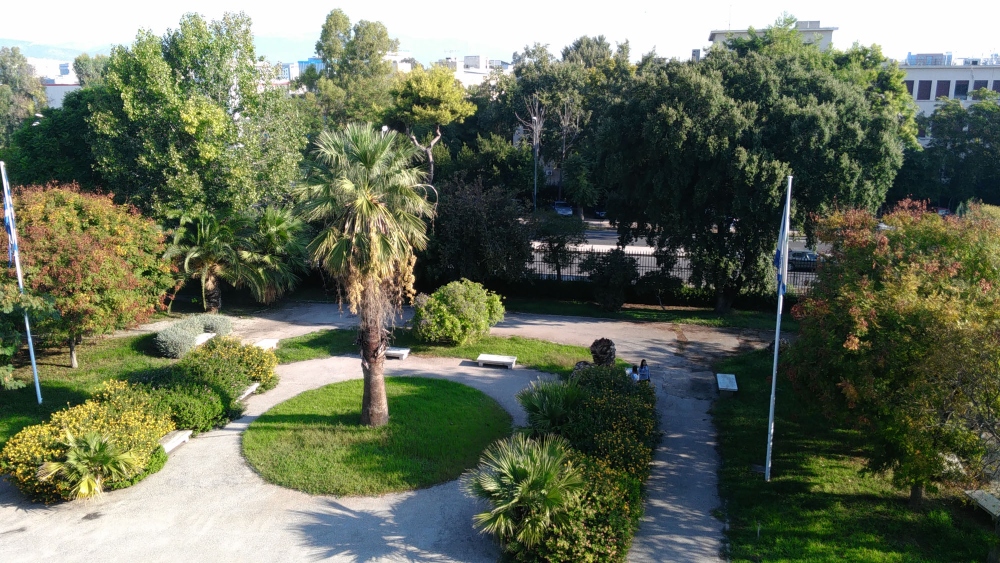 Since the lectures have already started, which is the feedback to date? Are you satisfied?
Since the lectures have already started, which is the feedback to date? Are you satisfied?
The applications this year were plenty and above our expectations, with high-profile applicants who had the necessary qualifications to be able to attend the Postgraduate Programme. The students, so far, have shown a keen interest in the courses, which shows that the Programme has high potential to develop graduate and future professionals with a good set of soft and hard skills related to innovative technologies reshaping the agricultural processes. Furthermore, they will build capacities toward more efficient management of resources and supply chain processes, and they will be encouraged to develop a better understanding of controlled environment agriculture or deploy enhanced agricultural machines and structures.
Do you believe that the Agricultural University of Athens provides competitive skills in those working in the primary sector, which accounts for to 2.9% of Greece’s GDP, as well as 14% of employment?
The Agricultural University of Athens is the third oldest university in Greece and, since 1920, it has made contributions to Greek agricultural and economic development, by conducting basic and applied research in Agricultural Science and Technology. The educational and scientific activities of the University, related to the fields of Research and Agricultural Science, in addition to fostering Innovation, under the extroversion and internationalisation framework of the Institution, highlight important scientific actions taking place within the Academic Community, too.
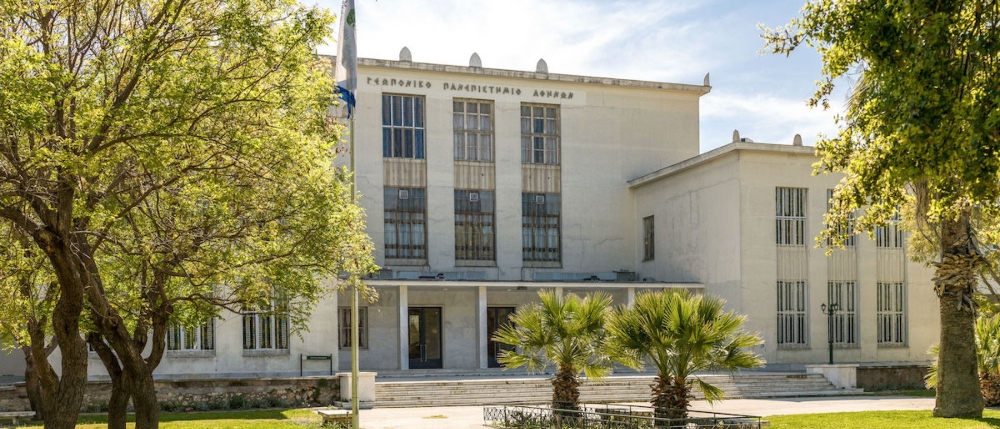 How do you think the agricultural economy will move in the coming years? How can this specific programme help in its development?
How do you think the agricultural economy will move in the coming years? How can this specific programme help in its development?
Agriculture plays an important role in transforming economies, along with achieving other essential development goals, such as ensuring food security and improving nutrition. Therefore, in order to end hunger and undernutrition, while accelerating economic growth, the transformation of agriculture must become a reality. Through this programme, students will gain the necessary knowledge and skills in order to help towards this transformation, at the same time conducting innovative research in the direction of transformation and digitalisation of the Agri-sector.
Please tell us a few things about the Agricultural University of Athens, which is the third oldest university in Greece – its extroversion efforts and plans for the future.
The Agricultural University of Athens offers high-level undergraduate and postgraduate Education and Research in Agricultural Science, and its vision is to achieve Educational and Research Excellence to occupy a dynamic position in the international academic environment. True to its traditional role of responding to the productive and developmental needs of the Greek economy and society, the Institution intervenes and develops in line with the development and orientation of modern education and science. Moreover, it is in continuous contact with society to make proposals and provide solutions to problems that arise within the Agri-nutrition sector.
Read also via Greek News Agenda: Diomedes Gardens: Greece’s largest botanical garden; Study in Greece Masters of the Week: Researcher George Fakotakis presents the MSc Programmes at the CIHEAM Mediterranean Agronomic Institute of Chania
N.M.


